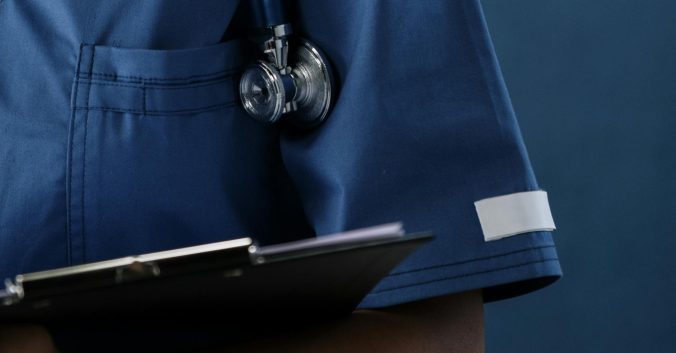The eating disorder anorexia (anorexia nervosa) is a mental disorder that can be life-threatening if it is not treated. It is characterized by fear of gaining weight: you starve yourself to lose weight and do not understand that being underweight is dangerous. Even if most recover, the disease is associated with increased mortality and the most severely ill may need to be hospitalized.
Hospital care can involve both psychotherapy and drug treatment, but not everyone wants or is able to participate in the treatment, which of course also involves eating. They may lack motivation to change or refuse to see that they need treatment. If the malnutrition becomes life-threatening, it may be necessary to decide on tube feeding as a compulsory measure. Liquid nutrition is then given via a thin tube that is inserted through one nostril and down into the stomach.
Tube-feeding an adult who does not want to eat is reasonably a challenge for the nurses who have to perform the procedure. What are their experiences of the measure like? One study investigated the issue by interviewing nurses at a Norwegian inpatient ward where adult patients with severe anorexia were cared for. What did the nurses have to say?
An important theme was that one strove to provide good care even during the coercive measure. It must be so good that the patient voluntarily wants to stay in the ward after tube feeding. For example, the measure is never taken until one has gradually tried to encourage the patient to eat, asked the patient about the situation and discussed whether to use the tube instead. If tube feeding becomes necessary, one still tries to give the patient options, one tries to respect the patient’s autonomy as much as possible, even if it is a coercive measure. The nurses also described difficulties in balancing kindness and firmness during the procedure, difficulties in combining the role of being a helper and being a controller.
Another theme was ethical concerns when the doctor decided on tube feeding even though the patient’s BMI was not so low that the condition was life-threatening. One nurse stated that she sometimes found such situations so problematic that she refused to take part in the procedure.
The third theme was concerns about calling in staff from another ward to help restrain the patient while the nurse performed the tube feeding. Some nurses were concerned about how this might be experienced by patients with a history of abuse. Others saw the tube feeding as a life-saving measure and experienced no ethical concerns. However, participants in the study emphasized that tube feeding affects the relationship with the patient and that restraint can disrupt the relationship. A nurse told how she once performed tube feeding on a patient she had never met before, and with whom she had therefore not established a relationship, and how this then prevented a good relationship with that patient.
If you want to read for yourself what the nurses said and how the authors discussed their findings, read the study here: Nurses’ experience of nasogastric tube feeding under restraint for Anorexia Nervosa in a psychiatric hospital.
Interview studies that capture human experience through the participants’ own stories often yield unexpectedly meaningful insights. Subtle details of human life that you would not otherwise have thought of appear in the interview material. One such insight from this study was how the nurses made great efforts so that tube feeding could be perceived as good care with respect for the patient’s autonomy and dignity, despite the fact that it is a coercive measure. It also became clear that there were tensions in the situation that the nurses had difficulty dealing with, such as first performing the coercive measure and then comforting the patient and re-establishing the relationship that had been disrupted. One of the conclusions in the article is therefore that even the nurses who perform tube feeding are vulnerable.

Written by…
Pär Segerdahl, Associate Professor at the Centre for Research Ethics & Bioethics and editor of the Ethics Blog.
Brinchmann, B.S., Ludvigsen, M.S. & Godskesen, T. Nurses’ experience of nasogastric tube feeding under restraint for Anorexia Nervosa in a psychiatric hospital. BMC Medical Ethics 25, 111 (2024). https://doi.org/10.1186/s12910-024-01108-x
Ethics needs empirical input



0 Comments
1 Pingback